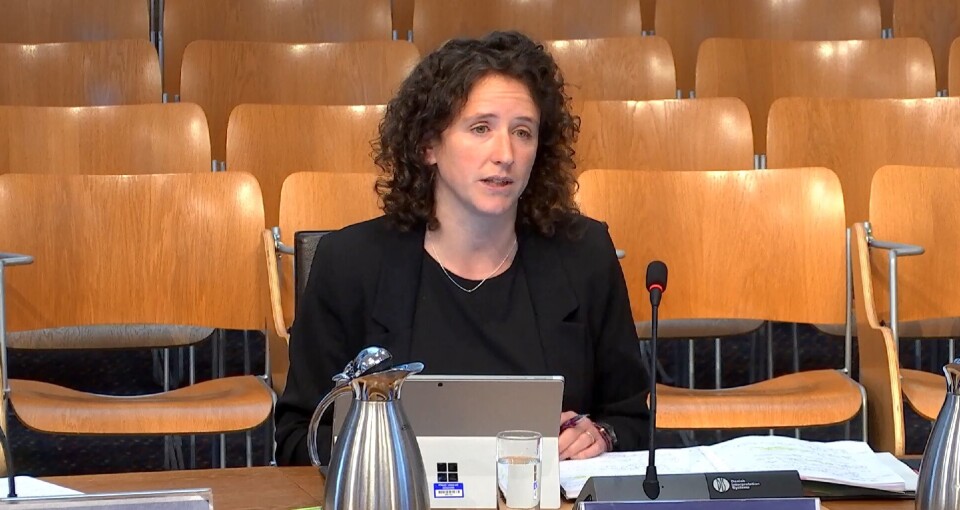
Salmon inquiry on the last lap
Cabinet minister and officials due at final evidence session in Scottish Parliament
A Scottish Parliament committee will hear from Rural Affairs Secretary Mairi Gougeon tomorrow during the final evidence session of its inquiry into the country’s salmon farming industry.
The Cabinet minister will be supported by three employees of the Scottish Government’s Marine Directorate: Charles Allan, senior delivery lead, aquaculture, fish health and biosecurity; and Jill Barber and Hazel Bartels, senior delivery leads within the aquaculture programme.
The inquiry by the Rural Affairs and Islands Committee (RAIC) is a follow-up inquiry into the implementation of recommendations on salmon farming in Scotland set out by one of the RAIC’s previous incarnations, the Rural Economy and Connectivity (REC) Committee in 2018.
A range of voices
The RAIC has held six evidence sessions – four in June, one in September and one in October – and heard from a wide range of stakeholders. These have included groups opposed to fish farming; academics and scientists; the government’s Fish Health Inspectorate, represented by Charles Allan, and Scottish Environment Protection Agency; John Goodlad, chair of the Salmon Interaction Working Group; and Fisheries Management Scotland.
MSPs have also been given the chance to question a panel of stakeholders with expertise in marine spatial planning and consenting processes, and have a roundtable discussion with representatives of the Scottish salmon farming industry following a visit to a salmon farm.
Evidence from fish farmers included a revelation from Mowi Scotland chief operating officer Ben Hadfield that the cost of hiring wellboats to treat fish for lice and gill problems was £25,000 per day per vessel. Farmers also criticised the lower lice limits proposed as part of SEPA's Sea Lice Risk Framework, which Hadfield was based on modelling with a high degree of over-prediction.
Negative impact
Scottish Sea Farms' head of fish health Ralph Bickerdike told MSPs: "We will be obliged to intervene or treat our fish at low lice burdens not for the welfare needs of our fish but because of a potential risk to wild salmon.
“Clearly, a negative impact on the welfare of farmed fish can be expected to result from such an increased requirement for intervention - including an increase in the risk of the transfer of disease, and increased mortality rates. That will cause reputational damage to the sector and to Scotland plc."
Read a full report on the discussion between MSPs and salmon farmers in the current online edition of Fish Farming Expert magazine.























































